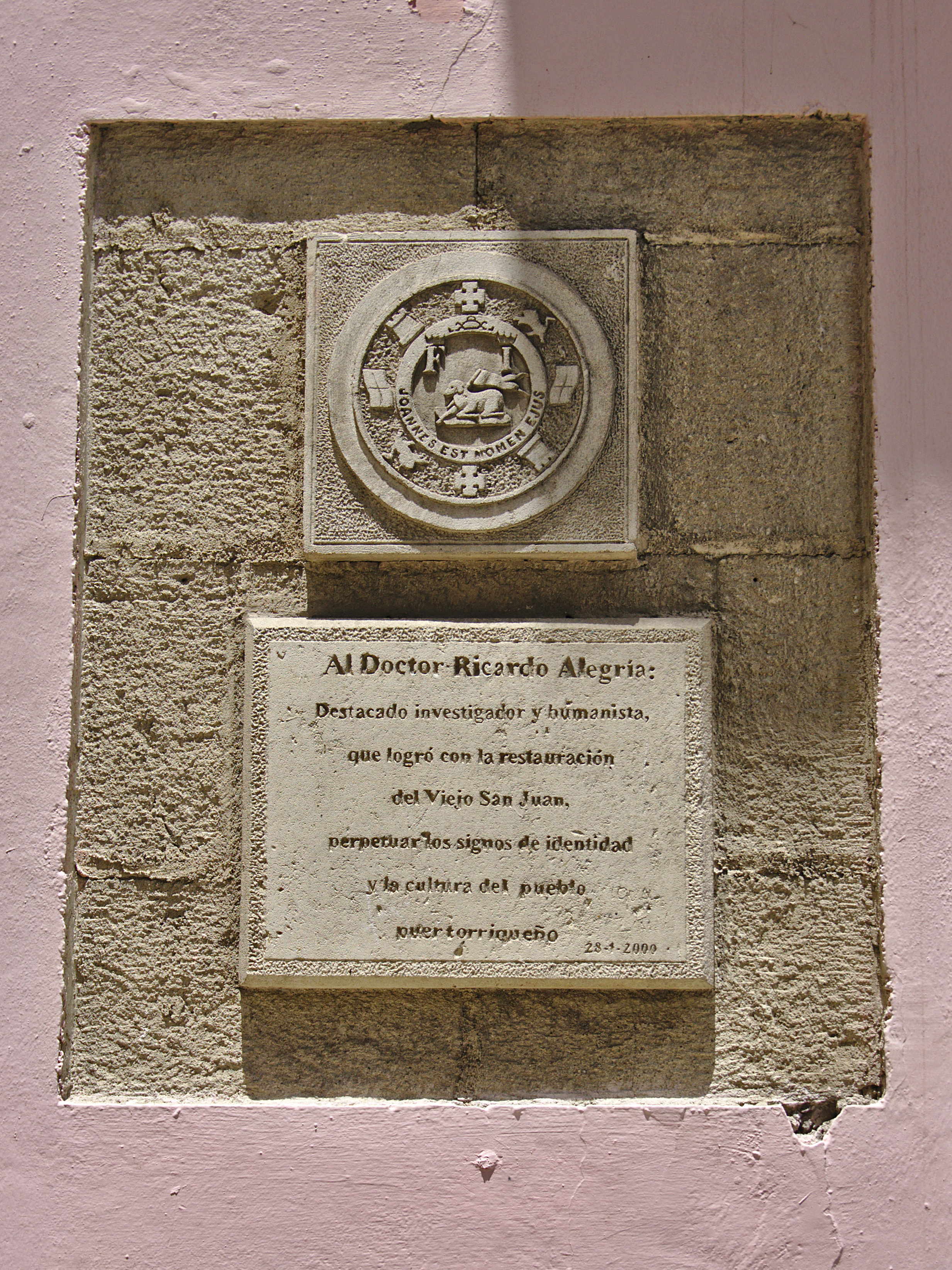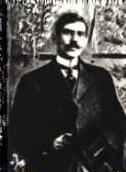|
José Coll Y Cuchí
José Coll y Cuchí (January 12, 1877 – July 2, 1960) was a lawyer, writer and the founder of the Puerto Rican Nationalist Party. He was a member of a Puerto Rican family of politicians, educators and writers.See: "Notable family members" section Early years Coll y Cuchí was born in Arecibo, Puerto Rico. His father was Cayetano Coll y Toste, a historian who in 1913 was named the "Official Historian of Puerto Rico" and his mother Adela, was the daughter of José Cuchí y Arnau former mayor of Arecibo. His family sent him to private schools for his primary and secondary education. El Nuevo Dia In 1896, Coll y Cuchí's family sent him to Spain where he earned his degree in law from the |
Arecibo, Puerto Rico
Arecibo (; ) is a city and municipality on the northern coast of Puerto Rico, on the shores of the Atlantic Ocean, located north of Utuado and Ciales; east of Hatillo; and west of Barceloneta and Florida. It is about west of San Juan, the capital city. Arecibo is the largest municipality in Puerto Rico by area, and it is the core city of the Arecibo Metropolitan Statistical Area and part of the greater San Juan Combined Statistical Area. It is spread over 18 ''barrios'' and Arecibo Pueblo (the downtown area and the administrative center of the city). Its population in 2020 was 87,754. The Arecibo Observatory, which housed the Arecibo telescope, the world's largest radio telescope until July 2016, is located in the municipality. The Arecibo telescope collapsed on December 1, 2020. Arecibo is the seat of the Roman Catholic Diocese of Arecibo. Etymology and nicknames The name ''Arecibo'' comes from the Taíno chief Xamaica Arasibo, cacique of the ''yucayeque'' (Taíno ... [...More Info...] [...Related Items...] OR: [Wikipedia] [Google] [Baidu] |
Ricardo Alegría
Ricardo E. Alegría Gallardo (April 14, 1921 – July 7, 2011) was a Puerto Rican scholar, cultural anthropologist and archaeologist known as the "father of modern Puerto Rican archaeology". Early years Alegría was born in San Juan, Puerto Rico where he received his primary and secondary education. His father, José S. Alegría, was a former vice president and founding member of the Puerto Rican Nationalist Party. It was Alegría's father who instilled in him a sense of love and pride for Puerto Rico, its history, and culture. In 1941 at the University of Puerto Rico, together with Yamil Galib, Alegría founded a new fraternity, Alpha Beta Chi. In 1942, Alegría earned his Bachelor of Science degree in archeology from the University of Puerto Rico. He continued his academic education in the University of Chicago where in 1947 he earned his master's in Anthropology and History. In 1954, Alegría earned his Ph.D (doctorate) in Anthropology from Harvard University. Legacy and d ... [...More Info...] [...Related Items...] OR: [Wikipedia] [Google] [Baidu] |
Ponce Massacre
The Ponce massacre was an event that took place on Palm Sunday, March 21, 1937, in Ponce, Puerto Rico, when a peaceful civilian march turned into a police shooting in which 19 civilians and two policemen were killed, and more than 200 civilians wounded. None of the civilians were armed and most of the dead were reportedly shot in their backs. The march had been organized by the Puerto Rican Nationalist Party to commemorate the abolition of slavery in Puerto Rico by the governing Spanish National Assembly in 1873, and to protest the U.S. government's imprisonment of the Party's leader, Pedro Albizu Campos, on sedition charges. An investigation led by the United States Commission on Civil Rights put the blame for the massacre squarely on the U.S.-appointed governor of Puerto Rico, Blanton Winship. Further criticism by members of the U.S. Congress led President Franklin D. Roosevelt to remove Whinship as governor in 1939. Governor Winship was never prosecuted for the massacre and ... [...More Info...] [...Related Items...] OR: [Wikipedia] [Google] [Baidu] |
Jewish People
Jews ( he, יְהוּדִים, , ) or Jewish people are an ethnoreligious group and nation originating from the Israelites Israelite origins and kingdom: "The first act in the long drama of Jewish history is the age of the Israelites""The people of the Kingdom of Israel and the ethnic and religious group known as the Jewish people that descended from them have been subjected to a number of forced migrations in their history" and Hebrews of historical Israel and Judah. Jewish ethnicity, nationhood, and religion are strongly interrelated, "Historically, the religious and ethnic dimensions of Jewish identity have been closely interwoven. In fact, so closely bound are they, that the traditional Jewish lexicon hardly distinguishes between the two concepts. Jewish religious practice, by definition, was observed exclusively by the Jewish people, and notions of Jewish peoplehood, nation, and community were suffused with faith in the Jewish God, the practice of Jewish (religious) ... [...More Info...] [...Related Items...] OR: [Wikipedia] [Google] [Baidu] |
Fufi Santori
José Santori Coll (May 7, 1932 – April 2, 2018) was a Puerto Rican basketball player and coach. Santori was also, for a short period late in his life, a bachata singer; he recorded an album, named ''El Sentimiento de Fufi'' (''Fufi's Feeling'') and musically directed by Harry Fraticelli, during 2011. Born in Santurce, San Juan, Puerto Rico, he was better known as Fufi Santori. After his retirement from National Superior Basketball Santori became a coach and television sportscaster. He was also a physical education, basketball and tennis instructor at the University of Puerto Rico at Mayagüez for nearly thirty years. Fufi Santori was of Corsican-Puerto Rican descent. He was also, through his maternal grandfather, of Irish descent. Early life and basketball Fufi Santori, his brother Tito and the rest of his family moved to San Juan at an early age. He grew up with pro-independence political ideas; his grandfather Cayetano Coll y Cuchí was first Speaker of the House of Re ... [...More Info...] [...Related Items...] OR: [Wikipedia] [Google] [Baidu] |
Isabel Cuchí Coll
Isabel Cuchí Coll (March 28, 1904 – December 22, 1993) was a journalist, writer and the Director of the (Society of Puerto Rican Authors). She came from a family of Puerto Rican historians and politicians. Early life and education Cuchí Coll was one of six siblings born to Luisa Coll y Cuchí (daughter of Cayetano Coll y Toste) and Luis Cuchí Arnau in Arecibo, Puerto Rico."Figuras Historicas De Puerto Rico, Vol. 2" ; Editor: Adolfo R. Lopez; Page 5 and 6; 2000. Publisher: Editorial Codillera, Inc.; . Cuchí Coll's grandfather Dr. Cayetano Coll y Toste (1850–1930), was a historian and writer.Biografías – Cayetano Coll y Toste at www.zonai.com Nuevo Dia] Her uncle [...More Info...] [...Related Items...] OR: [Wikipedia] [Google] [Baidu] |
Edna Coll
Edna Coll Pujals (July 24, 1906 – November 19, 2002) was a Puerto Rican educator and author. She was president of the Society of Puerto Rican Authors in San Juan. Coll was also the founder of the Academy of Fine Arts in Puerto Rico."Figuras Historicas De Puerto Rico, Vol. 2” ; Eitor: Adolfo R. Lopez; Page 5 and 6; 2000. Publisher: Editorial Codillera, Inc.; . Early life and education Edna Coll Pujals was born in Arecibo, Puerto Rico. Her parents were Cayetano Coll y Cuchí, a former President of Puerto Rico House of Representatives"Edna Coll Pujol Vida Y Literatura Puerto Rico Ensayos Biography"; Biography & Autobiography; Language: Spanish; 1st Edition, Illustrated; Publication Year: 19720000 and Carmen Pujol Toste. Coll received her primary and secondary education in San Juan. She earned a doctorate in literature and arts from the University of Puerto Rico."Tras las Huellas de Nuestro Paso"; by: Ildelfonso López; Publisher: AEELA, 1998 Career Coll was the president of t ... [...More Info...] [...Related Items...] OR: [Wikipedia] [Google] [Baidu] |
Puerto Rico House Of Representatives
The House of Representatives of Puerto Rico ( es, Cámara de Representantes de Puerto Rico) is the lower house of the Legislative Assembly of Puerto Rico, the bicameral territorial legislature of Puerto Rico. The House, together with the Senate, control the legislative branch of the government of Puerto Rico. The structure and responsibilities of the House are defined in Article III of the Constitution of Puerto Rico, which vests all legislative power in the Legislative Assembly. Every bill must be passed by the Senate and by the House, and signed by the governor in order to become law. The House has exclusive power to initiate impeachments and bring an indictment. The constitution also establishes that the appointment of the Secretary of State and the Comptroller require the advice and consent of the House, with all other appointments confirmed by the Senate alone. Financially, all bills for raising revenue must originate in the House. Structurally, the House is normally ... [...More Info...] [...Related Items...] OR: [Wikipedia] [Google] [Baidu] |
Cayetano Coll Y Cuchí
Cayetano Coll y Cuchí (June 21, 1881 – 1961) was a politician, writer and an advocate of Puerto Rican Independence. In 1917, he became the first President of Puerto Rico House of Representatives after the island was ceded to the United States by Spain as a result of the Spanish–American War. Coll y Cuchí was a member of a prominent family of Puerto Rican politicians, writers and educators.see: "Notable family members" section Early years Coll y Cuchi was born in Arecibo, Puerto Rico. His father was Cayetano Coll y Toste, a historian who in 1913 was named the "Official Historian of Puerto Rico" and his mother Adela, was the daughter of José Cuchi y Arnau former mayor of Arecibo. His family sent him to private schools for his primary and secondary education. Coll y Cuchi began his university education at the University of Barcelona. In 1910, he earned his law degree from a college in Washington, D.C.. After he earned his degree he returned to the island and established his la ... [...More Info...] [...Related Items...] OR: [Wikipedia] [Google] [Baidu] |
Herbert Hoover
Herbert Clark Hoover (August 10, 1874 – October 20, 1964) was an American politician who served as the 31st president of the United States from 1929 to 1933 and a member of the Republican Party, holding office during the onset of the Great Depression in the United States. A self-made man who became rich as a mining engineer, Hoover led the Commission for Relief in Belgium, served as the director of the U.S. Food Administration, and served as the U.S. Secretary of Commerce. Hoover was born to a Quaker family in West Branch, Iowa, but he grew up in Oregon. He was one of the first graduates of the new Stanford University in 1895. He took a position with a London-based mining company working in Australia and China. He rapidly became a wealthy mining engineer. In 1914 at the outbreak of World War I, he organized and headed the Commission for Relief in Belgium, an international relief organization that provided food to occupied Belgium. When the U.S. entered the war in 191 ... [...More Info...] [...Related Items...] OR: [Wikipedia] [Google] [Baidu] |
Hispanic
The term ''Hispanic'' ( es, hispano) refers to people, Spanish culture, cultures, or countries related to Spain, the Spanish language, or Hispanidad. The term commonly applies to countries with a cultural and historical link to Spain and to Viceroyalty, viceroyalties formerly part of the Spanish Empire following the Spanish colonization of the Americas, parts of the Spanish East Indies, Asia-Pacific region and Hispanic Africa , Africa. Outside of Spain, the Spanish language is a predominant or official language in the countries of Hispanic America and Equatorial Guinea. Further, the cultures of these countries were influenced by Spain to different degrees, combined with the local pre-Hispanic culture or other foreign influences. Former Spanish colonies elsewhere, namely the Spanish East Indies (the Philippines, Marianas, etc.) and Spanish Sahara (Western Sahara), were also influenced by Spanish culture, however Spanish is not a predominant language in these regions. Hispanic cul ... [...More Info...] [...Related Items...] OR: [Wikipedia] [Google] [Baidu] |

.jpg)


